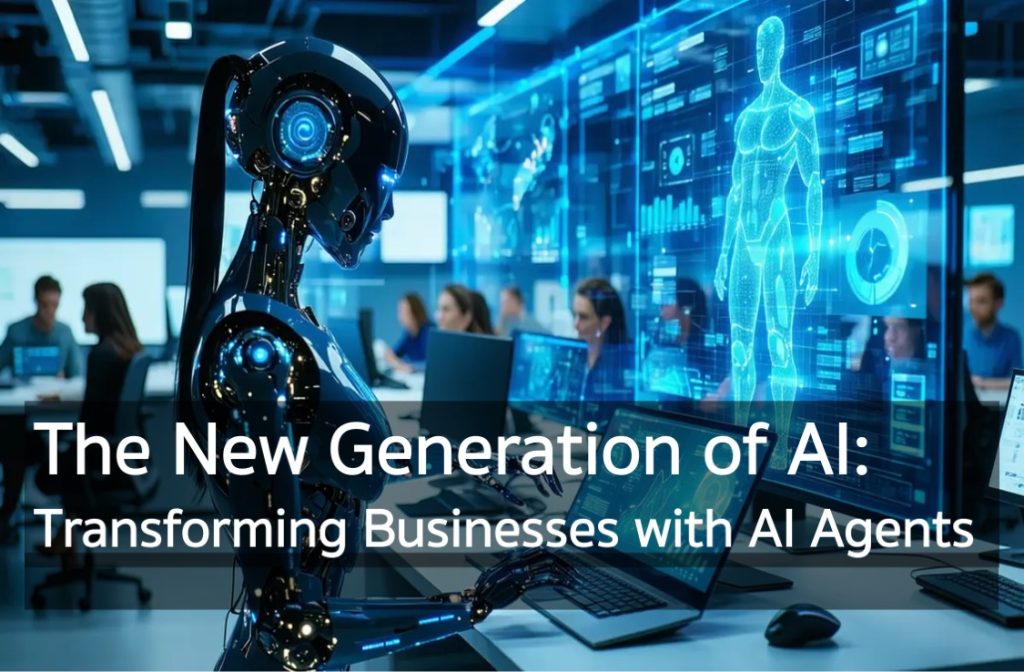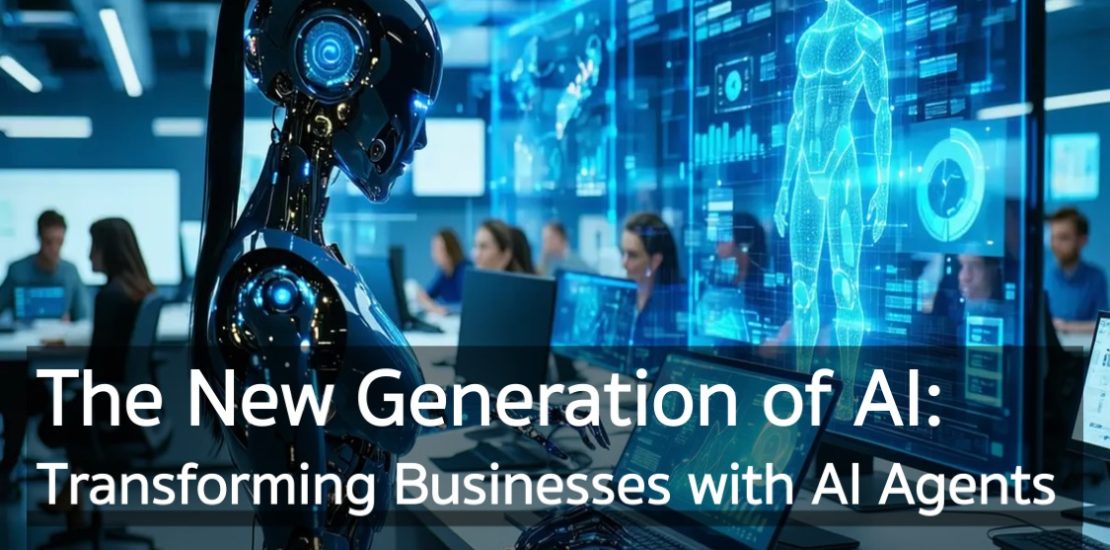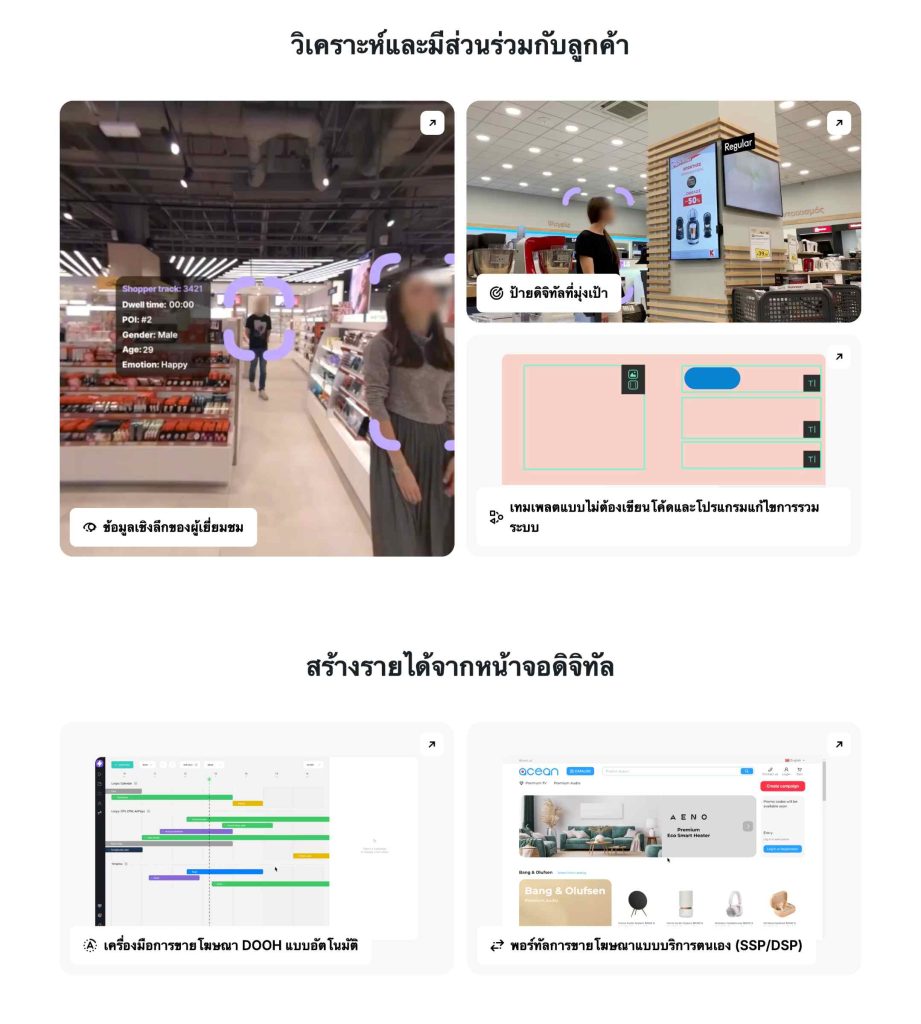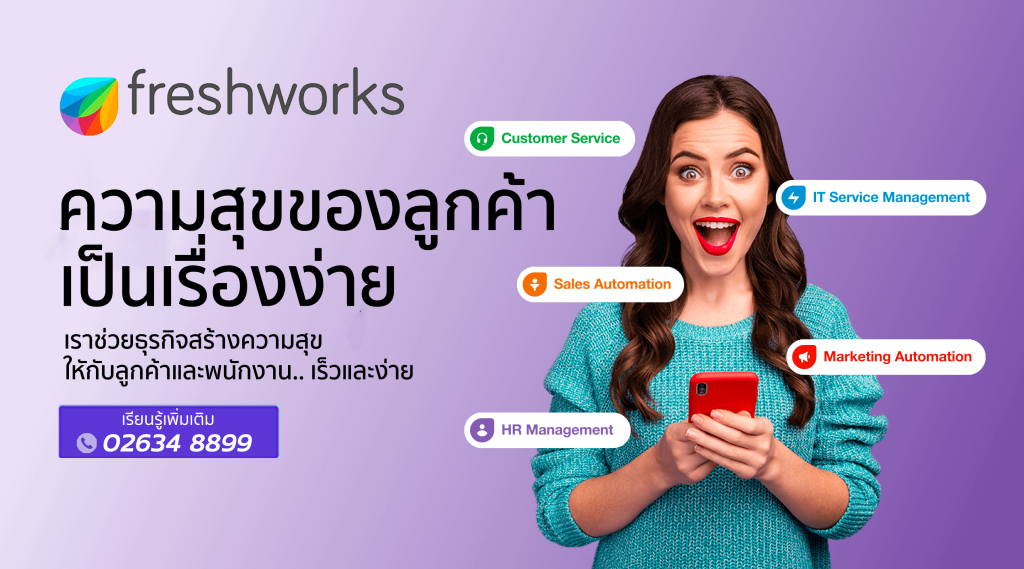The New Generation of AI: Transforming Businesses with AI Agents

Introduction to Artificial Intelligence (AI)
Artificial Intelligence (AI) has evolved from a theoretical concept to a transformative force reshaping industries worldwide. From its inception in the mid-20th century to the present, AI has been instrumental in automating tasks, enhancing decision-making processes, and creating innovative solutions. With advancements in Natural Language Processing (NLP), Machine Learning (ML), and Generative AI, the potential of AI continues to grow exponentially.
In this article, we’ll explore the transition to the new generation of AI and how AI agents surpass traditional chatbots in functionality and intelligence. Let’s first trace the evolution of AI and examine its major milestones.

The Evolution of AI: Major Milestones
- The Early Days of AI (1940s-1950s): Foundational theories like Warren McCulloch and Walter Pitts’ neural networks, Alan Turing’s Turing Test, and John McCarthy’s coining of ‘Artificial Intelligence’ at the Dartmouth Conference.
- The Growth of AI (1960s-1970s): Introduction of early AI programs like ELIZA and development of expert systems.
- Machine Learning Revolution (1980s-1990s): Emergence of ML, backpropagation algorithms, and IBM’s Deep Blue defeating Garry Kasparov.
- Modern AI (2000s-Present): Advancements in NLP, deep learning (e.g., AlexNet), and generative AI models like GPT.
What Are AI Agents?
AI agents represent the next evolution of artificial intelligence. Unlike traditional AI systems, AI agents are designed to act autonomously based on their understanding of context and objectives.
Definition
An AI agent is an autonomous software entity that perceives its environment, processes information, makes decisions, and acts to achieve specific goals.
Key Features
- Autonomy: Operates independently without human intervention.
- Adaptability: Learns from interactions and adapts to new scenarios.
- Decision-making: Analyzes data to make informed decisions.
- Integration: Seamlessly connects with other systems for better workflow automation.
What Are Chatbots?
Chatbots are predecessors to AI agents and represent a more limited approach to conversational AI.
Definition
A chatbot is a rule-based program designed to simulate conversation by responding to pre-defined inputs.
Key Features
- Task-specific: Primarily used for FAQs or simple customer queries.
- Limited learning: Static behavior with no capacity for learning from interactions.
- Predictable responses: Works within a fixed framework of responses.
AI Agents vs. Chatbots: Key Differences

Future Trends in AI Agents
- Integration with IoT Devices: Smarter environments at homes, offices, and factories.
- Human-like Interactions: Advances in generative AI will make AI agents more conversational.
- Industry-specific Applications: Catering to specialized domains like healthcare diagnostics.
- Augmented Decision-making: Assisting humans in making complex decisions with data-driven insights.
Conclusion
The new generation of AI, embodied by AI agents, marks a significant leap forward in technology. Unlike chatbots, which are limited to pre-defined tasks, AI agents adapt, learn, and perform autonomously, making them indispensable tools for businesses.
As AI continues to evolve, organizations must embrace AI agents to stay competitive and deliver unparalleled value to their customers. Whether it’s improving efficiency, providing personalized experiences, or automating workflows, AI agents are set to redefine the future of work and customer interactions.
For more information about Freshworks and AI Agent, please contact:
Sundae Solutions Co., Ltd.
T| +6626348899 E| sales@sundae.co.th
W| https://www.sundae.co.th/solution/crm-and-customer-experience/freshworks/
- December 9, 2024
- Posted by: sundaeadmin
- Category: Articles-EN




